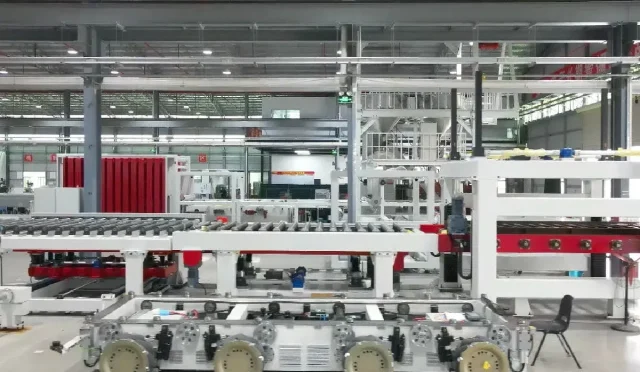Quantum Computing: Transforming Industries by 2030
Quantum computing is no longer a futuristic concept reserved for science fiction novels.
It is rapidly moving from theoretical exploration into practical applications that are set to transform industries across the globe. By 2030, quantum computers are expected to have a profound impact on how businesses operate, innovate, and solve problems.
At its core, quantum computing differs fundamentally from classical computing. Traditional computers process information in bits—0s and 1s—while quantum computers use qubits, which can exist simultaneously in multiple states thanks to the principles of superposition and entanglement. This unique property allows quantum systems to perform complex calculations at speeds and scales that are unattainable by classical machines.
One of the most significant impacts of quantum computing will be in the field of pharmaceuticals and healthcare. Today, developing new drugs is a time-consuming and costly process that relies heavily on trial and error. With the computational power of quantum algorithms, researchers will be able to simulate molecular structures and interactions with extreme precision. This will drastically accelerate the discovery of new medications and treatments for diseases that were previously considered untreatable.
The financial sector is another industry poised for transformation by quantum computing. Banks and investment firms deal with enormous amounts of data and rely on complex models for risk analysis, portfolio optimization, and fraud detection. Quantum computers can process massive datasets and evaluate countless variables simultaneously, offering insights that traditional algorithms would take years to uncover. Risk management will become more accurate, and financial products can be tailored to individual needs with unprecedented precision.
In logistics and supply chain management, quantum computing offers the ability to solve optimization problems that are too complex for current systems. Companies like DHL and Volkswagen are already exploring quantum algorithms to optimize delivery routes and traffic flow. By 2030, businesses could achieve near-perfect logistics planning, minimizing costs, reducing emissions, and ensuring timely deliveries even under highly dynamic conditions.
Quantum computing will also revolutionize cybersecurity. While quantum technology poses a threat to current encryption methods, it also provides new tools for securing data. Quantum encryption methods such as quantum key distribution (QKD) offer theoretically unbreakable communication channels. Organizations will need to adapt to the post-quantum cryptography era to protect sensitive information and maintain trust in digital transactions.
The energy sector stands to benefit enormously from the capabilities of quantum computing. Complex simulations of chemical reactions are vital for developing new energy materials and sustainable energy sources. Quantum algorithms can model battery chemistry, optimize grid management, and design more efficient solar cells. As the world transitions to cleaner energy, quantum technologies will be instrumental in making renewable energy sources more viable and cost-effective.
Artificial intelligence (AI) and machine learning will be supercharged by quantum computing. Machine learning models require substantial computational resources to train and optimize. Quantum-enhanced machine learning (QML) algorithms will drastically cut down the time and resources needed to build sophisticated AI models. This advancement will accelerate innovation in fields ranging from natural language processing to autonomous systems.
In the automotive industry, quantum computing will drive innovations in material science and autonomous driving technology. Designing lighter, stronger, and more sustainable materials will become more efficient, leading to safer and more energy-efficient vehicles. Moreover, quantum algorithms can help autonomous cars better navigate complex environments by processing massive streams of sensor data in real-time.
Aerospace and defense sectors will see significant advancements thanks to quantum simulations. Modeling the behavior of fluids, materials under stress, or even space-time dynamics can be done with much greater accuracy. This will lead to better aircraft designs, safer space missions, and advanced defense systems capable of countering emerging threats.
Retail and e-commerce industries will leverage quantum computing to provide hyper-personalized shopping experiences. With the ability to analyze vast amounts of consumer behavior data instantly, retailers can predict purchasing patterns, optimize inventory management, and create tailored marketing strategies that respond dynamically to customer preferences.
The advancement of quantum cloud computing will democratize access to quantum resources. Instead of building their own quantum computers, companies will access quantum capabilities through cloud providers like IBM, Google, or Amazon. This model will lower the barrier to entry, allowing startups, universities, and smaller enterprises to innovate using quantum tools without massive infrastructure investments.
Government and public policy will also undergo transformation with the advent of quantum computing. Complex societal problems—such as climate modeling, traffic management in megacities, and national defense simulations—require computational power beyond today’s capabilities. Governments investing in quantum research will gain strategic advantages, shaping policy and innovation leadership on a global scale.
Ethical considerations will become increasingly important as quantum technology matures. Issues around data privacy, inequality of access, and potential misuse of quantum capabilities will need to be addressed through international cooperation and forward-thinking regulation. Organizations that prioritize ethical quantum development will be better positioned to build public trust and long-term success.
One of the greatest challenges facing quantum computing today is error correction. Qubits are highly sensitive to environmental disturbances, leading to computation errors. However, major breakthroughs are being made in quantum error correction, bringing us closer to achieving reliable and scalable quantum systems. Innovations in quantum hardware, such as superconducting qubits, trapped ions, and topological qubits, are fueling this progress.
Education and workforce development must adapt to the realities of quantum technology. New curricula focusing on quantum mechanics, quantum algorithms, and quantum information science are essential to preparing the next generation of scientists, engineers, and entrepreneurs. Interdisciplinary expertise will be critical, blending quantum physics knowledge with computer science, engineering, and domain-specific applications.
By 2030, industries that embrace quantum computing will outperform competitors in speed, precision, and innovation capacity. Early adopters will unlock new market opportunities, create disruptive products, and reshape entire sectors. Organizations that fail to invest in quantum readiness risk falling behind in a world where computational advantage increasingly defines success.
The transformation driven by quantum computing will not be isolated to a few sectors. It will ripple through the entire global economy, touching everything from entertainment and fashion to agriculture and education. Companies, governments, and individuals who understand and adapt to this coming revolution will be the architects of a new technological era.
#️⃣ #quantumcomputing #quantumtechnology #futureoftech #quantumalgorithms #AIandQuantum #quantuminnovation #nextgencomputing








